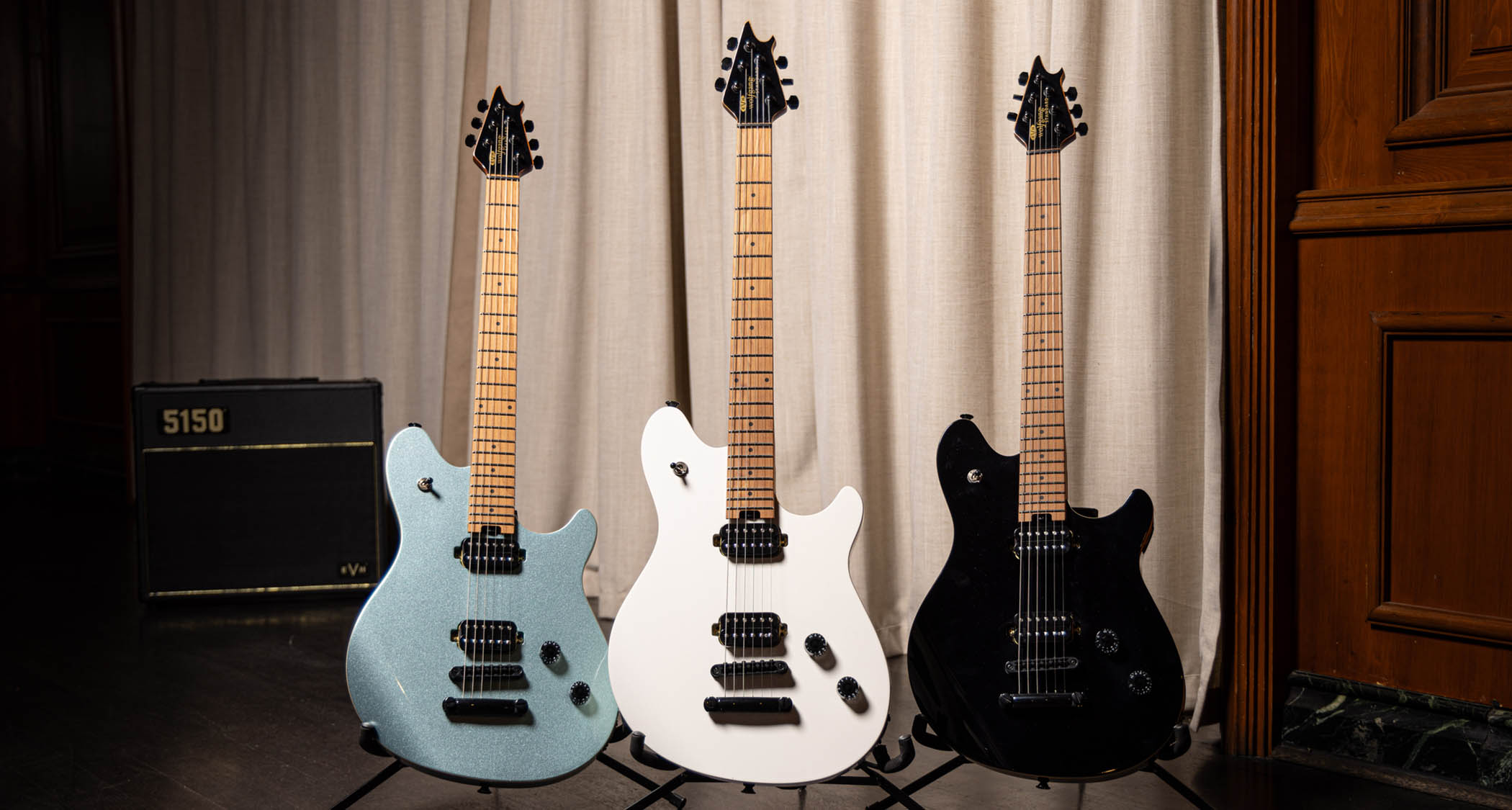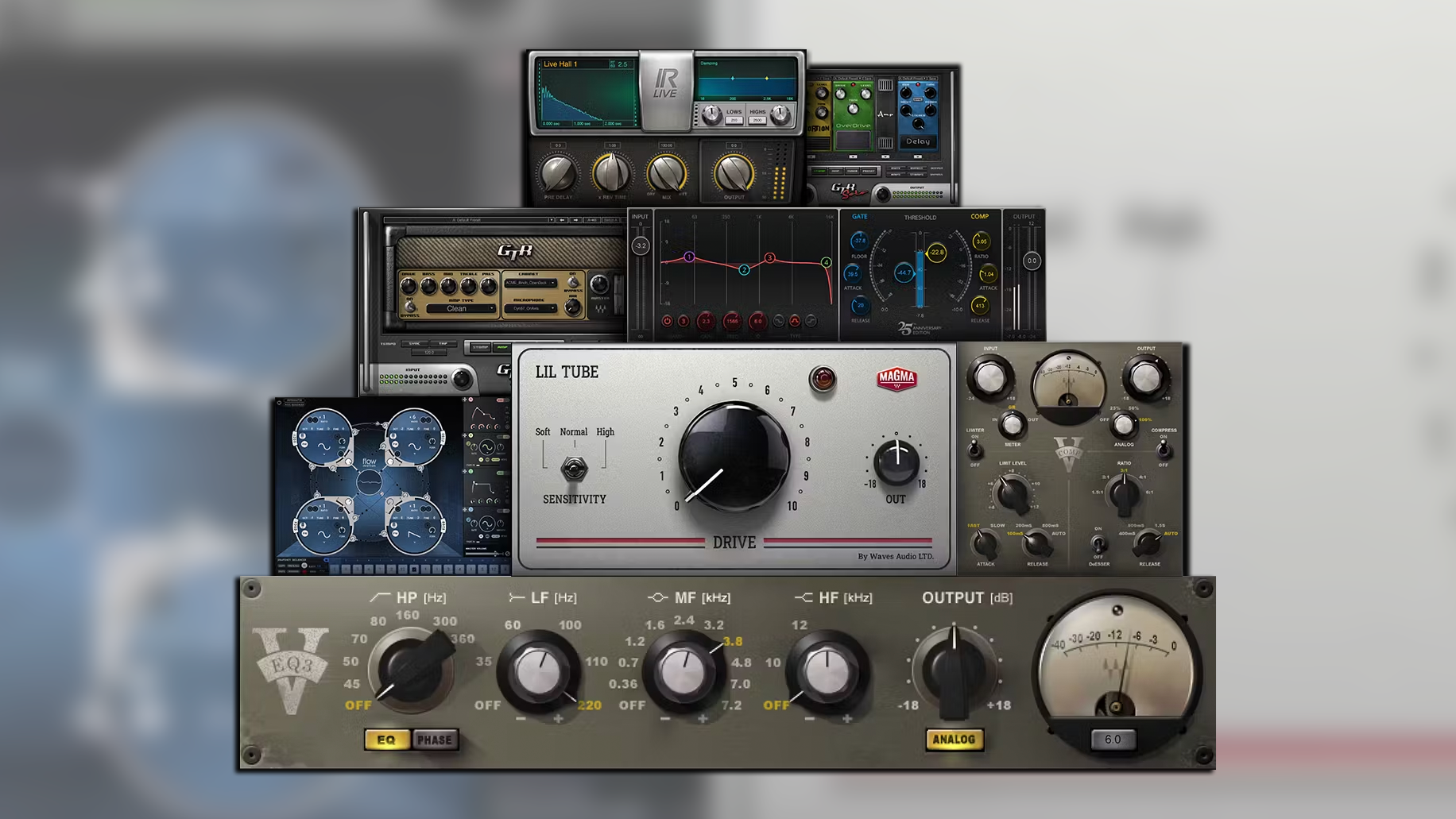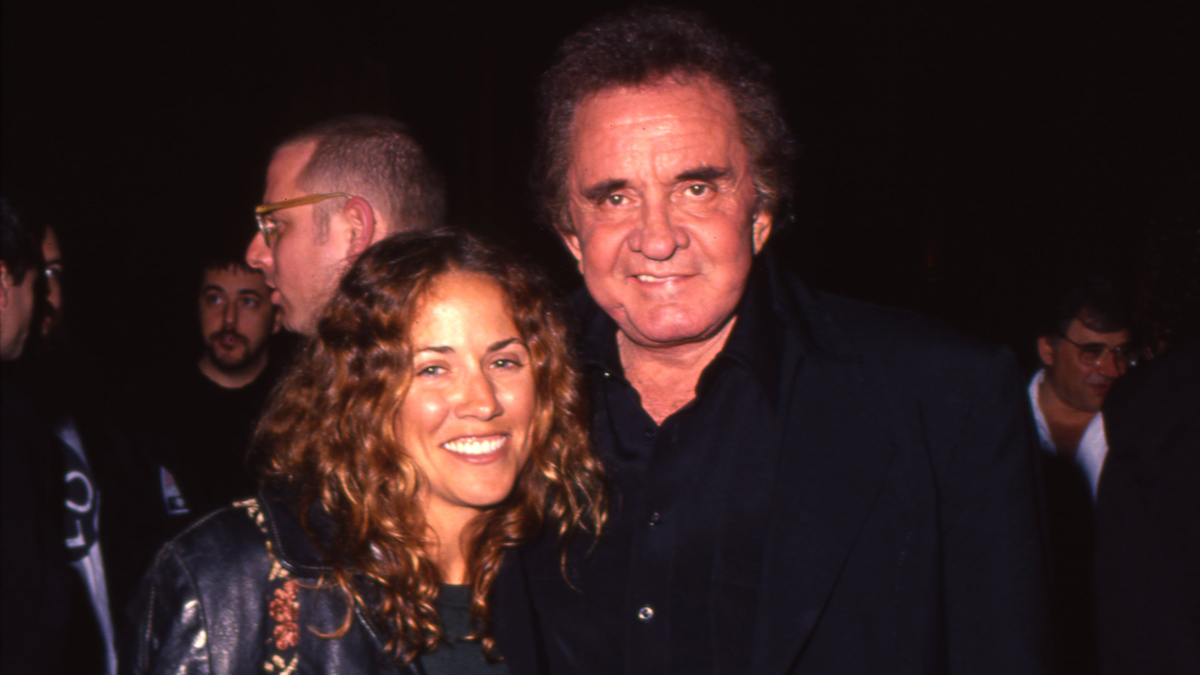Full Bucket Music looks beyond the Prophet-5 and releases a free plugin emulation of the Six-Trak, a lesser-known Sequential Circuits synth from 1984
One of the first MIDI multitimbral synths comes to your DAW for free
Full Bucket Music has coded out a reputation for creating great-sounding free plugin emulations of lesser-known vintage synths, and it’s up to its old-school tricks again with the release of Six-Traq, a software clone of 1984’s Sequential Circuits Six-Trak.
It might be one of Dave Smith’s lesser-known instruments, but the Six-Trak still has plenty to recommend about it. This was one of the first multitimbral MIDI synths, and featured six analogue oscillators and a - you guessed it - 6-track sequencer. Intuitive sound design could be tricky due to a lack of real-time controls, but if you wanted a scratchpad machine for coming up with ideas, it was an appealing option.
Six-Traq models the look, feel and sound of the original hardware but offers extended Poly/Multi modes that up the polyphony count from six to 96 voices. This means that each part can have 16 voices if you’re using them separately, of you can access them all in Unison mode.
For the oscillator, you get a choice of three waveforms plus an additional white noise generator, and there’s a self-resonating four-pole lowpass filter. Individual envelopes for the oscillator, filter and amplifier are included, as is the sequencer and an arpeggiator.
Six-Traq runs on PC and Mac in VST/AU/CLAP/AAX formats and, because it’s written in native C++, you can expect “high performance” and low CPU consumption. You can download it now from the Full Bucket Music website.
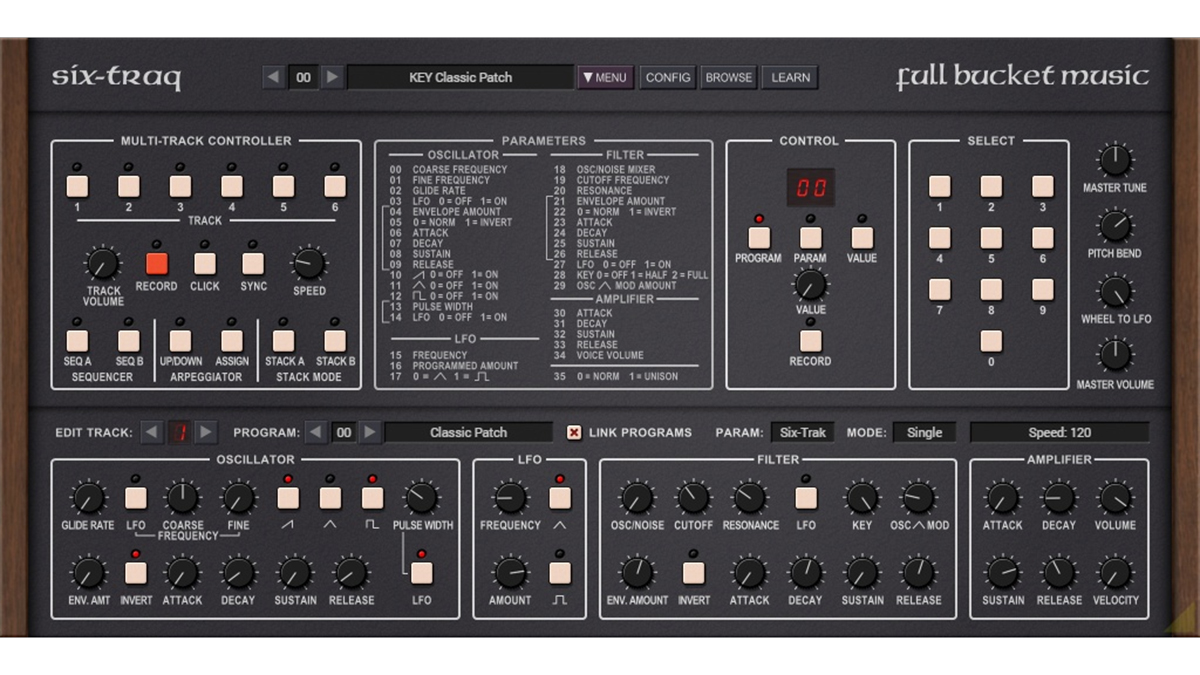
Get the MusicRadar Newsletter
Want all the hottest music and gear news, reviews, deals, features and more, direct to your inbox? Sign up here.



I’m the Deputy Editor of MusicRadar, having worked on the site since its launch in 2007. I previously spent eight years working on our sister magazine, Computer Music. I’ve been playing the piano, gigging in bands and failing to finish tracks at home for more than 30 years, 24 of which I’ve also spent writing about music and the ever-changing technology used to make it.
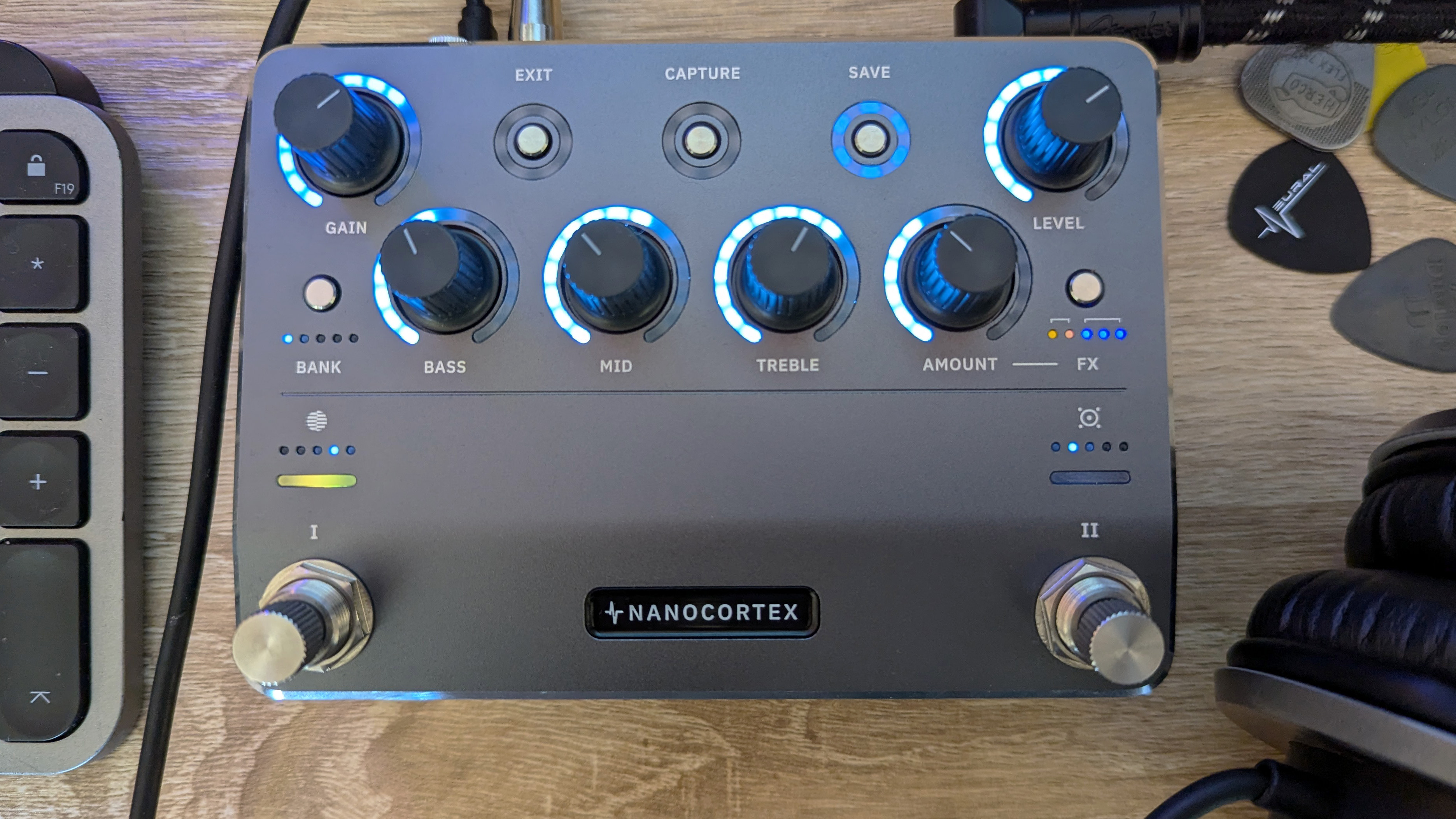
![Gretsch Limited Edition Paisley Penguin [left] and Honey Dipper Resonator: the Penguin dresses the famous singlecut in gold sparkle with a Paisley Pattern graphic, while the 99 per cent aluminium Honey Dipper makes a welcome return to the lineup.](https://cdn.mos.cms.futurecdn.net/BgZycMYFMAgTErT4DdsgbG.jpg)
